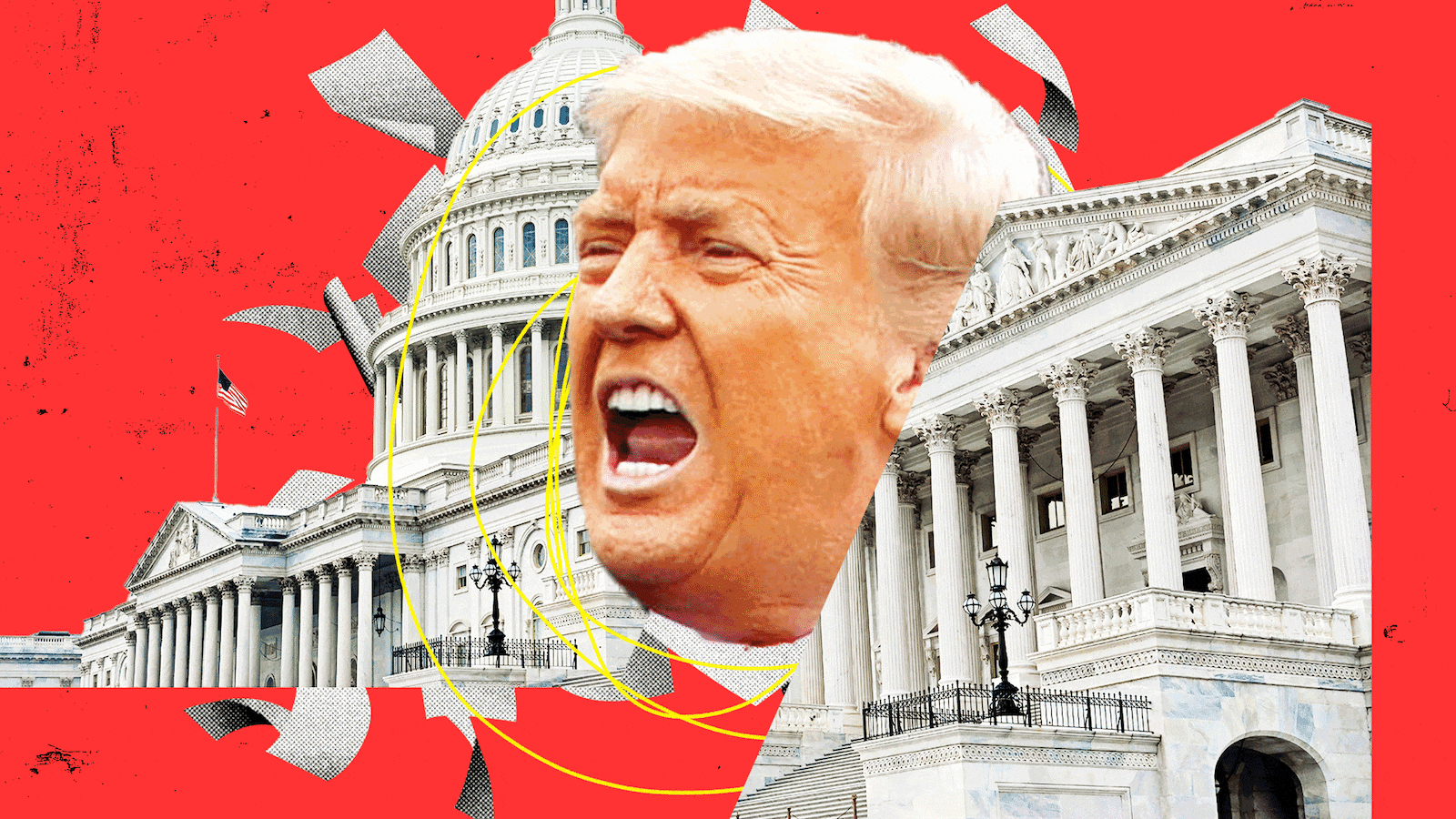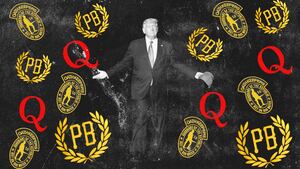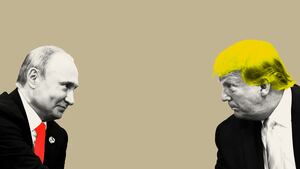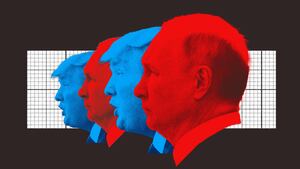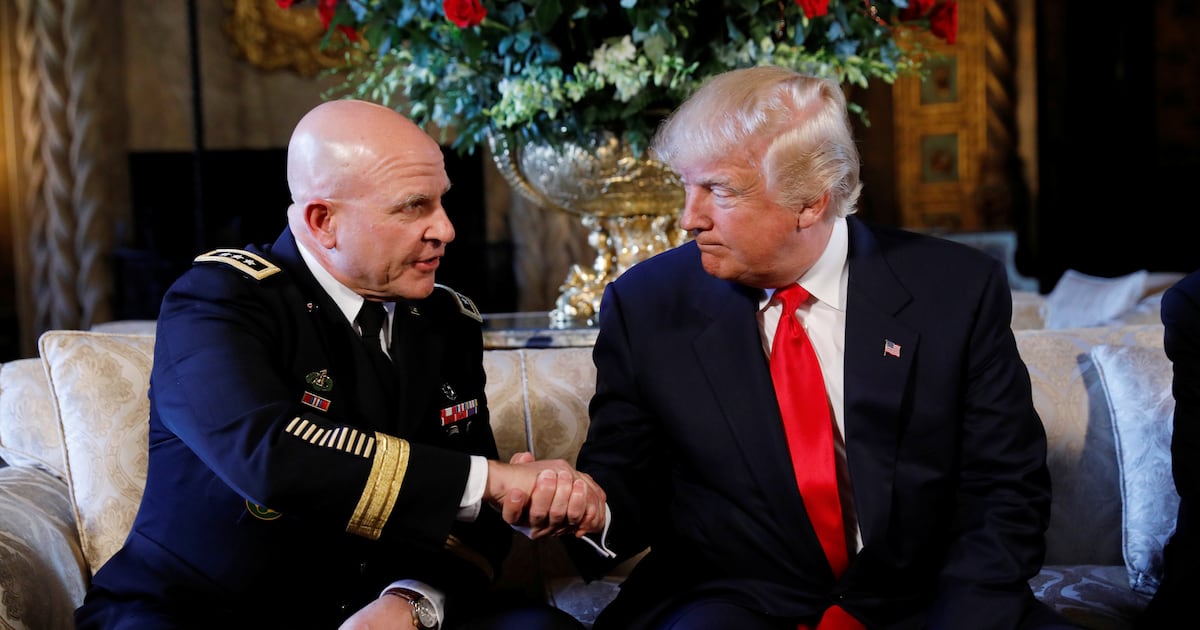With the hammer of the U.S. justice system seemingly poised to come down at any moment on our already disgraced, twice impeached former President Donald Trump, it is vital we frame the case or cases filed against the president the right way.
Failure to do so misrepresents the crimes that he is alleged to have committed and understates the threat Trump continues to represent.
This means that my brothers and sisters in the media and the D.C. commentariat need to stop referring to the former president’s theft of classified documents vital to our national security as merely “the documents case.”
Even as short-hand, it makes it sound as though Trump were being charged with a bureaucratic slip-up, a mistake in shifting a few pieces of paper he moved from the White House to his southern temple of excess in West Palm Beach. It is a framing that serves the former president’s defenders, and allows them to equate it to other instances in which government documents ended up in the homes of former officials—but were quickly returned as soon as the mistake was discovered.
Shorthand descriptions of events we refer to repeatedly may seem useful, but they are deeply misleading if what they leave out are the essential elements of what we are describing. Based on evidence that has already been made public we know that Trump did not mistakenly shift a classified document or two from the White House to Mar-a-Lago. He was briefed repeatedly on the proper handling of classified materials. He has even acknowledged, on tape, that he understood how such sensitive, easily weaponizable documents should be treated.

But he ignored the law. He ignored the advice he was repeatedly given. And, based on reporting to date, he stole scores of items that were not his, to which he had no right, which could put the lives of Americans and our national interests and those of our allies at risk.
When news of his theft was discovered and the U.S. Department of Justice sought the return of those documents, Trump did not cooperate. He lied about them. He concealed documents from the government. He obstructed justice. In fact, if recent reporting is true, he did not just obstruct justice, he went to great lengths to do so. Indeed, the lengths he went to force us to ask another question that is relevant in this case: “Why?”
Why did he go to such great lengths to violate the law and put his future freedom at risk not to mention exposing U.S. intelligence assets to great jeopardy? Was it just to satisfy his admittedly gargantuan ego? To be able to say, “Lookee here, I was president once and I can prove it?” Even for Trump, that would be reckless.
No, it is unlikely he would have committed these alleged crimes unless he had a purpose in mind, an audience for what he had taken in mind, an anticipated return envisioned for the investment of time he had made, and for the risk he had undertaken.
We do not know to whom the documents may have been shown. Perhaps we will learn that in due course. We do not know (and perhaps may never know) to whom he may have contemplated showing them. But it seems safe to assume he did not hang onto them because he possessed some Harlan Crow-like impulse to create a personal museum that paid tribute to historical misdeeds.
We know this, in part, because he had shown a complete contempt for our national security, for the products produced by our intelligence community, for the entire concept of protecting vital national secrets throughout his presidency.
He appointed a national security adviser, Michael Flynn, who lied to the FBI about inappropriate exchanges he had with foreign enemies. He sought to defend that national security adviser after his crimes were clear (and has said he would reappoint him should he be elected again.) In one of his first meetings in the Oval Office with Russia’s foreign minister, he revealed to him and to the Russian ambassador sensitive classified information that put allied intelligence assets at risk.
He ignored the advice of national security professionals and granted his son-in-law and daughter classified clearances they should not have had. He repeatedly attacked and denigrated the intelligence community including one time, while standing alongside Vladimir Putin in Helsinki in 2018.
He put stooges in high places in the intelligence community to ensure that he would be able to control any revelations they might produce that he saw as threatening, and perhaps to enable him to come up with dirt on his enemies. He has said he would fire the professionals in the U.S. government in a clear effort to be able to replace them with those who placed loyalty to him above loyalty to the country or our Constitution.
This is all known. All on the public record. He was a threat to national security long before he stole these classified materials and went to great lengths to illegally retain them.
Indeed, there are not only these facts to provide context but the other major cases against Trump that are looming. What could better illustrate that Trump was something more than a souvenir hunter? He was, after all, impeached for seeking to blackmail Ukraine’s President Zelensky into performing a political hit job on Joe Biden prior to the 2020 campaign. He was again impeached for leading an insurrection against the U.S. government, actions which themselves may lead to a set of indictments from special prosecutor Jack Smith. Part of what Smith may be investigating are the efforts at defrauding the U.S. electorate, and perhaps Trump’s own donors in an effort to illegally maintain the presidency. Fulton County (Georgia) District Attorney Fani Willis may also prosecute him for those crimes.

If Willis does it, let’s be careful not to refer to it as the “Georgia case” or simply as the “fake electors” case.
If Smith goes after Trump for leading an attempted coup against his own government, let’s not call it just the “Jan. 6 case” or be tempted to frame it in a way that makes it look, as some Republicans would have it, as though it were about just another partisan spat on Capitol Hill, albeit one that got a little out of hand.
The stakes in all these cases are much greater.
Take, for example, the reported case of a recording of Trump suggesting he was in possession of a classified war plans memo concerning possible moves we might make against Iran.
It’s not just egregious behavior, whatever the reason for his mentioning it, it also requires we consider what might happen if he shared that with his friends and business partners in Saudi Arabia or how, should the document become more widely available to our enemies, it could in a future conflict put U.S. soldiers lives at risk.
The case against Trump for leading a coup attempt is not about something that happened almost three years ago. He is running for president again. He has repeatedly shown his disregard for the Constitution and his willingness to place his own personal interests above those of the country.
It is not about punishing him for violating the public trust. It is about preventing him from doing it again. (And let’s be clear, Trump acting on his own behalf or on behalf of a mob of right-wing extremists is absolutely no different from acting on behalf of a foreign enemy. Those posing a conscious threat to American national security and interests are our enemies, whatever their origins or stated rationales.)
That is why we must frame the nature of the crimes with which the former president is being charged so carefully. We dare not numb ourselves to why they are important, numb ourselves to the anger and outrage we should be feeling or to the sense of danger that the likely defendant carries with him should the cases prove unsuccessful or, God forbid, their verdicts are subsequently nullified by an American electorate that failed to understand the scale and gravity of the crimes Trump committed repeatedly, often before our very eyes.
Donald Trump is not simply a clown, a fraud, an incompetent, a former game show host, or a sloppy, vulgar, golf-and-fast-food-loving doofus. Yes, he is all those things. But they are not the aspects of his character—or his behavior—that are important here.
He is, above all, a threat. He is a danger. He is tied to our worst international enemies and a threat the FBI director calls the greatest we face (domestic terror).
His trials should not be seen as political spectacles or some new twisted Trumpian reality show. They should be seen as an effort by our system to protect us, to take a dangerous man off the streets, to reduce the threat to our nation, our children, our allies, our values, and our institutions that this one malevolent, profoundly corrupt man poses.

